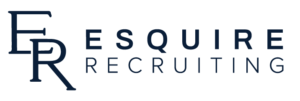The interview process can be scary and nerve-wracking. Making yourself familiar with the following mistakes can help you prepare for your own interview! At Esquire, we interview people daily, so we know how daunting interviews may be! No matter how many interviews you have gone on, there is always room to improve your skills. What mistakes should you avoid during an interview? Continue reading below to find out!
You Don’t Make Eye Contact
In the midst of your nervousness, you might forget to make eye contact with your interviewer. Try your best to avoid this! Making eye contact with them during the course of your interview shows that you are engaged. Eye contact is an easy way to show you are present and being an active listener. Maintaining eye contact, especially during the hard questions, shows your confidence!
You Don’t Have a Good Attitude
Are you too enthusiastic or too monotone? It’s important to find a balance between those two extremes. Being overly enthusiastic can give the interviewer vibes that you are putting on a show. You might not seem sincere if you overcompensate. Avoid being monotone during the interview as well. This can show that you might not be interested in the job or company, which will be a red flag for the interviewer.
You Avoid Tricky Questions
There are so many aspects to interview questions. Make sure you don’t dodge the tricky questions. Answering the hard questions thoroughly can show that you are adaptable and will be able to problem solve. Also, don’t forget to ask the interviewer some questions! If you ask them questions, they will know you care about the position and company, and you will look prepared and be taken seriously.
You Don’t Show Your Personality
Be yourself! While there are many things that aren’t appropriate to say or do, it is important that you show the interviewer who you are. The interviewer needs to know what you are like so they can imagine if you are a good fit for their company or team. Be confident and don’t fidget.
Familiarize yourself with these common mistakes so you don’t make them! Interviews can get easier if you feel prepared and confident.
Searching for a new position? Check out our open jobs list!
What should you do if you’re late to an interview? Find out here!



